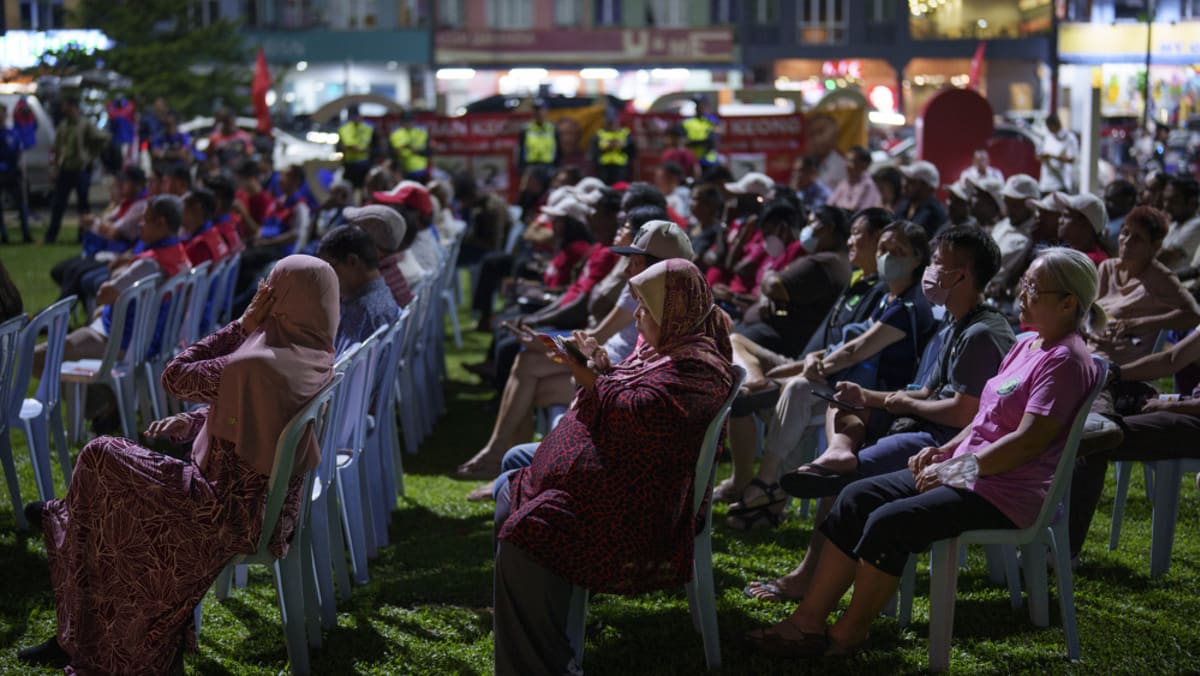
One voter who tells CNA that he will not be casting his ballot for the upcoming polls is Farizul Izwani, who is registered to vote at the state constituency of Cempaka in Kelantan
Farizul, who is based in Selangor for work, says that travelling home might be cumbersome, and he feels that it is unlikely that his vote would matter in the bigger picture.
“When I travelled back to vote in the general election, I had to endure a nine-hour traffic jam from KL to Kelantan,” says the 42-year-old.
“PAS (Parti Islam Se-Malaysia) is also very strong in Kelantan. I don’t think my vote will be enough to sway support for PH-BN,” says Mr Farizul, who is a PH supporter.
Mr Thomas Fann, chairman for non-governmental group – The Coalition for Clean and Fair Elections – which is better known as Bersih, predicts that the voter turnout is likely to be around 64 per cent based on the feedback he received.
“State elections not held in conjunction with the General Election tend to have a lower voter turnout by around 10-15 per cent. For the upcoming state polls, the early signs are not good … We are a bit concerned,” says Mr Fann.
Bersih is a strong advocate for mass participation at the polls, and has launched a #VoteLocal campaign on Aug 1 to persuade voters to cast their ballots irregardless of which party they support.
Mr Fann cites how the PH candidate Michelle Ng for the Subang Jaya state seat in Selangor recently revealed that there has been a lower number of postal ballots issued for her constituency than expected.
In the video posted on Instagram, Ms Ng says that only 398 postal ballots were issued by the Election Commission for the Subang Jaya state seat for the upcoming polls.
This is significantly lower from the projected 1,425 postal ballots issued for the area during GE15 for the Subang parliamentary seat.
“If this is reflective of the voter turnout rate on Aug 12, we are headed for disaster. In order for PH to retain the state, we need at least a 65 per cent turnout. I hope this is a wake-up call,” she says in the video.
LOWER TURNOUT AMONG ETHNIC MINORITIES LIKELY TO ADVANTAGE PN
On how this lower voter turnout could impact overall results, observers CNA spoke to outline that a large number of voters who will abstain from voting will likely be the ethnic minorities – Chinese and Indians who are based out of state.
They add that this will likely hurt the PH-BN alliance more, as the majority of ethnic minorities support the coalition.
Bersih’s Mr Fann tells CNA: “Based on our interaction and observations with overseas voters and voters out of state, the profile of this group is typically those of Chinese ethnicity, who are registered to seats near the west coast of Peninsula Malaysia.”
He adds that a lower voter turnout for these seats would probably handicap PH.
“(With lower voter turnout), I think the seats in the West Coast would probably become a lot more competitive and may be decided by a few hundred votes,” says Mr Fann.
Ilham Centre’s Mr Hisommudin also cites data from the Melaka and Johor state polls held in 2021 and 2022 respectively, as examples of how PH’s performance was adversely impacted by relatively lower turnout by the minority voters.
Based on statistics provided by the Election Commission, the turnout for the Chinese and Indians in Melaka and Johor were 68 per cent and 43 per cent respectively.
This was lower than the figures for the General Election in November, which was 72 per cent and 68 per cent for the Chinese and Indians in Melaka and Johor respectively.
